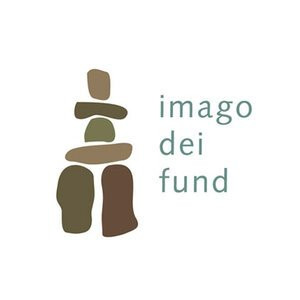
OUR PROGRAMS
Sexual & Reproductive Health


Agateka*
This project aims to promote health and good menstrual hygiene management among young girls and women through education, the production and distribution of reusable sanitary pads. These pads, which last 3-5 years, can be worn with or without underwear and come in three sizes: large, medium, and small.
We utilize a multi-faceted approach to advance menstrual health: community sensitization through roadshows and radio broadcasts, payment plans for VSLA members who wish to purchase Agateka pads, and free distribution drives of pads in schools and to vulnerable groups, such as those in hospitals and refugee camps. So far, the project has impacted girls and women in Bujumbura, Cibitoke, Gitega, Karusi, Kirundo, Makamba, Muyinga, Ngozi, and Ruyigi.
*Dignity
109,970
women in Burundi have purchased and used Agateka reusable sanitary pads.
213,756
schoolgirls in Burundi have received free Agateka reusable pads, to use for 3-5 years.

Hinduka uhindure abandi*
This project aims to enhance knowledge about sexual and reproductive health and rights (SRHR). We educate, raise awareness, and inform the population to improve their SRH and provide SRH services at the Gatumba Health Centre. Our approaches include mass education via an SMS platform with a toll-free number, allowing users to receive messages directly on their mobile phones and ask questions privately. The youth receive messages based on “The World starts with me” module from the Ministry of Education, while adults receive content from the “Community Health Worker's Handbook” by the Directorate of Health Promotion. We also produce educational videos and organize roadshows specifically tailored to illiterate populations.
*Change and help others change
143,026
youth and women have been reached by our toll-free mobile SMS education project.
4,160
women have adhered to modern contraceptive methods of their choice.

Ikiyago*
This project aims to enhance communication between parents and children, encouraging youth to rely on their parents for accurate information regarding SRH. We hope to reduce the spread of misinformation among peers and improve parent-child communication on SRH, helping to reduce unwanted pregnancies and STIs. The beneficiaries of the project are student peer educators and their parents in Karusi and Ngozi.
*Conversation
100
young peer-educators have been trained on how to communicate with parents about SRH.
100
parents have been trained on how to communicate with the youth about SRH.

Ishure ry'inyenyeri*
This project aims to improve hygiene, health, and SRH education in schools. Inspired by UNICEF’s and GIZ's "three-star school" approach, we promote a shift in perceptions and practices, urging schools to evolve from zero-star to three-star status by focusing on hygiene. We train and equip school guardians, establish school clubs through which we educate and raise awareness, and assess the schools’ needs for water and sanitation facilities, which are addressed through the Isuku project. We operate in all regions where we have community centres and in partnership with the Ministry of Education, and the Ministry of Public Health and fight against AIDS.
*The school of stars
11,830
young girls and boys are members of Inyenyeri school clubs.
843
school educators have been trained on the Three-Star-School approach.

Iterambere*
This project focuses on promoting the financial independence of women and youth by teaching them financial literacy, and entrepreneurship, promoting the creation of VSLAs, and supporting income-generating activities. Women who are members of VSLAs also have access to self-directed payment plans when they wish to purchase Agateka reusable sanitary pads. We operate in Bujumbura, Gatumba, Cibitoke, Gitega, Karusi, Ngozi, Kirundo, Muyinga, Ruyigi, and Makamba.
*Development
1,874
VSLAs have been created.
6,291
income-generating activities started by members of VSLAs.
Impact stories
Empowering Choices: Two women's journeys in Family Planning
17 Apr 2024
In 2023, the National Institute of Statistics of Burundi estimated the population at 13.1 million, with 67% under the age of 25. With an annual demographic growth rate of 2.4% and a fertility rate of 5.2 (2022), the population is expected to reach 20 million by 2050. Burundi is also one of the most densely populated countries, globally. On the other hand, teenage fertility rates are high. In 2021, more than 1,300 students were affected by this issue, with 120 of them aged 10 to 14 years, according to a 2022 report by the National Reproductive Health Program. The consequences are often school dropouts and/or early marriages.
Education and access to Sexual and Reproductive Health (SRH) services are crucial to addressing demographic challenges. The program's objective is to empower communities with knowledge and resources for better SRH, aiming to reduce unwanted pregnancies and STIs, and improve overall community health. Our approaches include mass education via mobile phone SMS, videos and roadshows, improving parent-child communication, and training mentors and educators who provide SRH education to their peers in their communities.
Below are projects that aim to achieve some or all of our Sexual & Reproductive Health objectives.
Objectives
Provide education on sexual and reproductive health and rights.
Improve access to reproductive health services and family planning.
Reduce the incidence of sexually transmitted infections (STIs) and unplanned pregnancies.
Empower individuals to make informed decisions about their reproductive health.



















